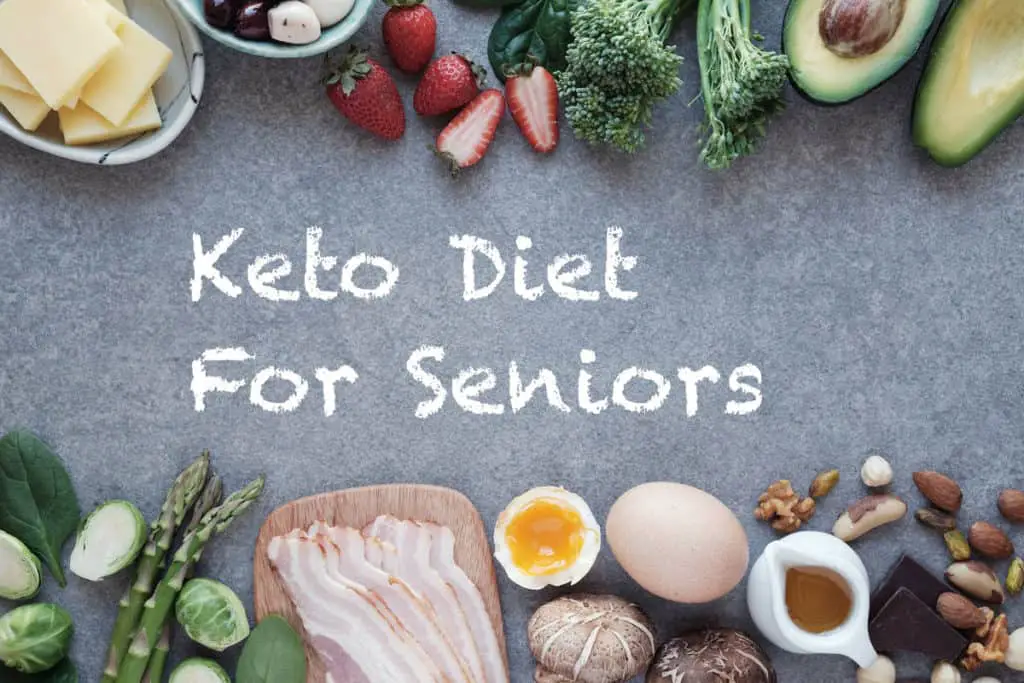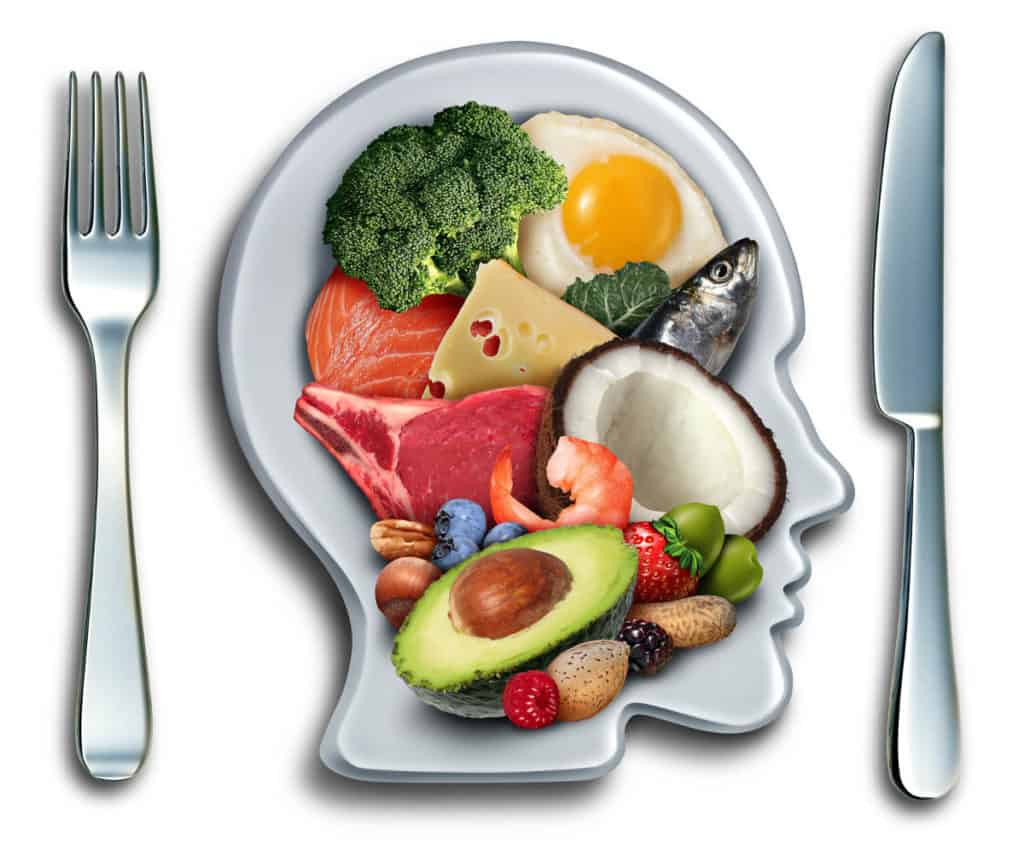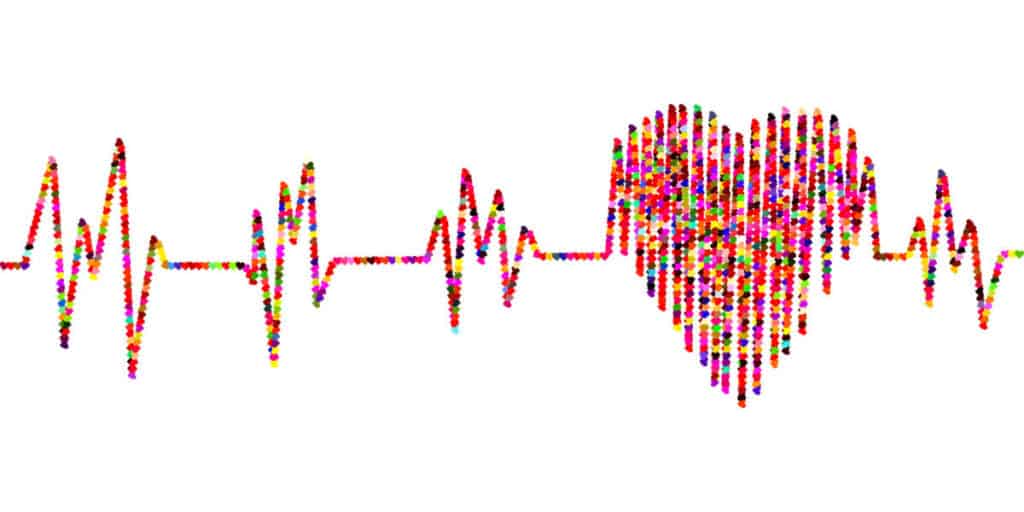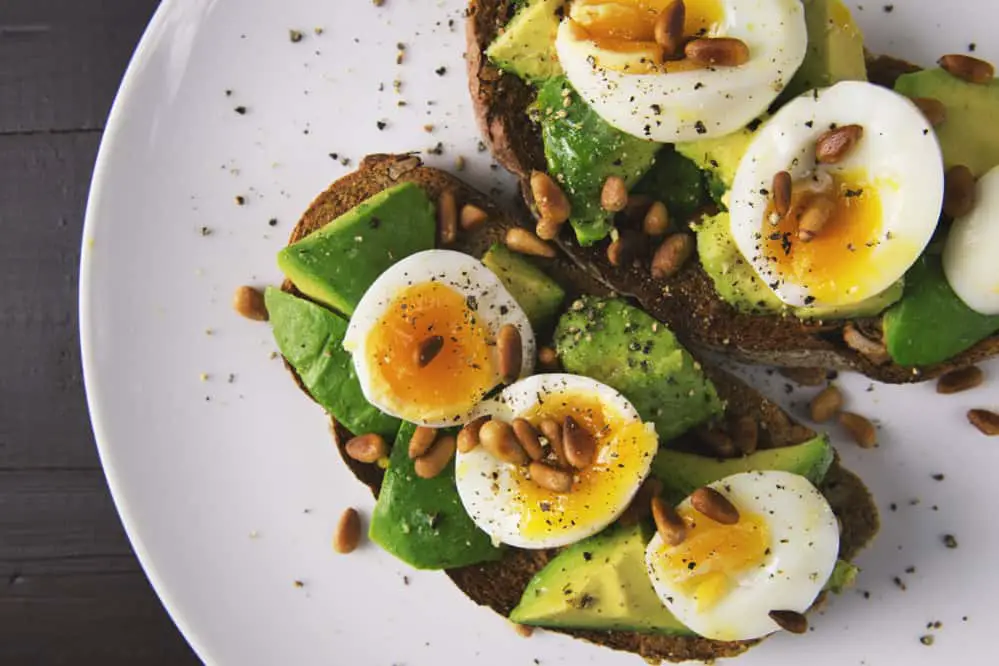Your health gradually changes as you age. Some of these changes have to do with a slowed metabolic rate and subsequent weight gain. Healthy eating can help to slow down these changes and reduce your susceptibility to diseases. Can the keto diet for seniors work as well as it does for younger individuals?

What’s a Keto Diet?
Doctors describe the ketogenic diet as a high-fat low-carb diet whose primary goal is weight loss. Several studies have shown that the keto diet can help to lose weight and strengthen your immune system against ailments such as cancer, diabetes, and Alzheimer’s disease. I go into more detail about the keto diet in my article ‘the complete guide to keto.’
Doesn’t that go Against Everything we Know? Lose Weight by Eating Fat?
Seemingly so, but science now shows that eating less fat does not help you stay slim. In 23 studies cited by Healthline, all participants on a low-carb diet lost more weight than those on a low-fat diet.
So here is how it works—eating certain healthy fats makes you feel satiated, and that means that you are less tempted to overeat. And also, fat helps you stay fuller for longer and can, therefore, reduce your frequency of snacking between meals.

So which Fats are Said to be Healthy in a Keto Diet?
A keto diet can include any type of fat except saturated and Trans fats. These fats, also mostly associated with processed foods, are high in cholesterol and can pose severe health risks to you. The types of fats guaranteed to enhance your health according to heart.org include:
Polyunsaturated Fats: These fats are from food sources such as salmon, nuts, and seeds. They supply your body with omega-3 fatty acids, which help to reduce the risk of heart conditions and cancers.
Monounsaturated Fats: You can get these fats by going big on plant foods such as almonds, hazelnuts, and avocados. Monounsaturated fats help to reduce harmful cholesterol levels in your blood. Monounsaturated fats are your best protection against stroke and heart attacks.
How does the Keto Diet Work?
The keto diet drives your body into a metabolic state known as ketosis. In this state, the body only uses fat for energy, switching from carbohydrates because their supply is so low. Once you enter into the fat-burning state, experts believe that your body’s efficiency in converting fats to ketones improves steeply, accelerating weight loss.
I go into more detail about the keto diet in my article, the complete guide to keto.
In a high carb diet, the rate of fat metabolism is usually low because your body has an alternative and natural source of energy—glucose. Ketosis leads to a reduction of insulin levels and blood sugar, both of which can have immense health benefits.
Signs that you are in ketosis include:
- Thirst
- Muscle cramps
- Weight loss
- Increased ketones in urine—you can use a testing kit from Amazon to find out.
- Bad breath (Keto Breath)
- Fatigue and general weakness
- Improved focus and concentration
If you’re looking for a keto diet program, check out the 28-day keto challenge and the 3-week keto diet. Both of these provide you with meal plans which will help you out
But I have to eat a Balanced Diet, Right? So what Ratios Should I have in a Keto Diet?
A keto diet, unlike fad diets, stresses the importance of having every nutrient in your meals. Carbohydrates are not stripped out completely; they are just minimized to below 5 % of the diet. Proteins and vitamins must be on the menu as well.
A standard keto diet has 75 % fat, 20 % protein, and only 5 % carbs. You can also try the high protein keto diet that contains 60 % fat, 35 % protein, and 5 % carbs. These two types of keto diets have been extensively studied, and there is sufficient evidence to show that they work in weight loss and against many ailments.
You said that Keto Works well in Younger Individuals? How so?
Keto has several health benefits. The first one, of course, is weight loss. Technically, carbs do not make you overweight, and that’s why studies have always shown that participants who restrict carb intake lose a minimal amount of weight. But fats can help you lose weight. That’s what the keto diet is about.
Eating more fat conditions the body to burn more fat—in essence, you teach your system that the only source of energy available is fats.
Other health benefits of the keto diet, apart from weight loss:
- Reduces the risk of cancers
- Strengthens the brain function
- Improves heart health
- Reduces seizures
- Minimizes the risk of Polycystic ovary syndrome (PCOS)
So Many Health Benefits, but does Keto Work for the Elderly?
Healthy eating is critical at all ages of life. And science has shown how keto works, how your body goes into ketosis and starts using fat for energy as opposed to carbohydrates. We have seen how that can be beneficial in weight management and the prevention of other ailments. Even the elderly can benefit from all that.
But like any other diet, keto comes with risks too. Among the young, these include kidney stones, constipation, low blood sugar (risk for diabetics), heart conditions, and nutrient deficiencies. These risks can be more pronounced in the elderly because their immune system and body strength levels are typically not as efficient as they used to be.
The Pros and Cons of the Keto Diet for Seniors
For many people, getting older means putting on weight and being unhealthy. That is because there is no energy to spare for physical activities. And even if you have the motivation to workout, your body is just not up to the task. The reason being your metabolism starts to slow as you get older.
But a declining metabolic rate is not the only thing that seniors have to deal with daily. Remember that as you age, you lose muscle mass. The result is general body weakness and disrupted sleep patterns. There could be ways to overcome these challenges with a keto diet.

Benefits of the Keto Diet for Seniors
Ketogenic diets can support mental and physical health in old age. Here are the many benefits of trying a keto diet for seniors:
1. Reduces the Risk of Cancers
Although many cancers are not age-specific, the conditions are prevalent among older populations. Scientists have found that the ketogenic diet can help to prevent or treat some types of cancers. There is evidence that a state of ketosis can slow down the growth of certain tumors.
For that reason, keto diets may be recommended for seniors undergoing cancer treatment. It can be a complementary strategy for chemotherapy or radiation therapy. Experts believe that a state of ketosis leads to increased oxidative stress in the cancer cells leading to their deterioration.
A 2018 study also found that a ketogenic diet, causing a decline in blood sugar, reduces the chances of a person developing insulin complications. Now the latter has been linked to many types of cancers, including breast cancer, pancreatic cancer, and colorectal cancer, among others.
2. Keto is Good for the Heart
85.6 million of all adult Americans have heart complications. 7.8 % of men and 4.5 % of women aged between 60 and 79 years have a risk of heart failure. This data from the American Heart Association shows just how aging could mean an onset of severe heart complications for older adults. Apart from heart failure, these include stroke and coronary heart diseases, among others.

Can a keto diet save seniors from the risk of heart diseases?
It works for younger people, and there is no reason why it shouldn’t have the same results in seniors. So, here is the deal; by eating healthy fats, you reduce your body’s level of bad cholesterol, also known as LDL. And then there is the weight loss factor too.
Losing weight, which is made possible by an increased fat metabolism in ketosis, reduces the risk of cardiovascular complications associated with obesity. After spending considerable time in keto, researchers believe that your body adapts and becomes efficient at energy production. That means you will have the energy to stay physically active. That typically means no more heart complications for you.
3. Keto Improves Cognitive Function
One of the most significant drawbacks of old age is cognitive decline. A study published on NCBI shows that as we age, the brain shrinks in volume. The gradual reduction in the size of the prefrontal cortex means reduced cognitive abilities and even poor memory. Just how does the keto diet help to strengthen cognitive stamina in seniors?
Many researchers concur that the ketones produced during ketosis have neuroprotective functions. They strengthen the nerves and brain cells. The Scientific American also reports that a ketogenic diet supplies the brain with the needed high energy for memory and learning.
Ketones are supposedly more fuel-efficient than glucose. The increased energy reserve in the brain empowers your neurons to prevent stressors that may lead to cognitive decline. A healthy diet similarly reduces oxidative damage, which in most cases speeds up aging and neurodegeneration.
A study published in NCBI measured the cognitive benefits of the ketogenic diet among 23 older adults. The results showed that after six weeks, participants on a keto diet performed better in verbal memory tests compared to the control group.
4. Keto can Help to Reduce Seizures.
Seizures are more common among the elderly compared to any other age group. Ketosis can help to reduce seizures in cases of epilepsy, especially if other treatments are not working for the patient. For almost a hundred years, some versions of the ketogenic diet have been used to treat epilepsy in children.
Here is how it works: ketones inhibit the overexcitement of neurons. The change from glucose to fat metabolism causes changes in the cerebrospinal fluid. These changes bring stability to the firing of neurons. The Epilepsy Foundation recommends keto as a potentially reliable treatment against drug-resistant seizures.
5. Reduce the Risk of Polycystic Ovary Syndrome. (PCOS)
PCOS is common in women as they get older. A woman with PCOS produces a higher level of male hormones (androgens) in their ovaries. This hormonal imbalance increases the risk of heart diseases and type-2 diabetes. Women who are insulin resistant can experience weight gain, especially around the waist, and increased cravings for carbs. PCOS is mostly experienced shortly before menopause, but the condition can linger on after menopause.
Keto helps with PCOS by lowering insulin resistance and insulin levels. Studies have shown the keto diet, by improving weight loss, can help to reduce the symptoms of PCOS. And spending considerable time in the state of ketosis also achieves hormonal rebalancing that may help reverse PCOS.
6. Keto Strengthens the Bones
Old age comes along with osteoporosis, which is the reduction in bone density. The condition causes weakness in seniors and puts them at risk of fractures and injuries if they engage in physical activities. Most of the fats and proteins in a keto diet are healthy for the bones. But beware that ketosis often generates acidifying ketones, which could lead to more bone loss.
Dangers of the Keto Diet for Seniors
Despite the many health benefits that an older person stands to gain by following a keto diet, this diet plan is also fraught with risks. Staying on a diet for a long time is not advisable. Here are some of the reasons why seniors should seek medical advice before attempting keto:
1. Keto Flu can get Nasty for Seniors
Before your body gets into ketosis, you are bound to experience adverse effects, often known as the keto flu. The keto flu has symptoms that indicate that your body is now switching from the metabolism of glucose to fats. These effects, including fatigue, weakness, and gastrointestinal distress, usually pass after a few days among the young, but they could linger on for days in older people.
Experts say that 1 in every four people on keto experiences these symptoms. The keto flu is a bumpy metabolic transition for which an older adult might not be ready. Nonetheless, you can reduce the side effects by staying hydrated and getting enough sleep. Green tea and organic coffee may also be helpful.
2. Low Tolerance for Physical Activity
Before your body learns to use fat for fuel, a low-carb meal plan makes you feel tired most of the time. At this time, it would be hard to engage in physical exercises. Lack of physical activity among the elderly speeds up aging and heightens their risk of cardiovascular disease.
For a smooth transition into keto, it is recommended to stick to lower-intensity workouts. Stretching exercises need to be part of your routine, and during the keto flu, stretching alone may be enough. As you get into ketosis, consider some light swimming, biking, and jogging. As the days progress, you may be able to get back to weight lifting and push-ups.
3. Keto Could Lead to Nutrient Deficiency
Some keto meal plans discourage the consumption of fruits and vegetables, and that could have devastating effects on the health of the senior. Keto or not, you need to eat plenty of vitamins naturally derived from fruits and vegetables. They guard against diseases and help a person to live longer.
A vitamin-rich diet minimizes the risk of heart diseases and high blood pressure. It strengthens your immunity against some types of cancers and digestive disorders.
Keto-friendly fruits and vegetables for seniors include cauliflower, avocado, bananas, cabbage, spinach, green beans, and others.
Health experts recommend using supplements such as potassium, calcium, and vitamins B, C, E, and D.
If you’re looking for a keto diet program, check out the 28-day keto challenge and the 3-week keto diet. Both of these provide you with meal plans which will help you out
4. Keto May Lead to Kidney Problems.
Animal fat can alter the structure of the kidney. And because keto stresses fat over everything else, chances are high. The seniors may eat cheese, meat, and eggs, in a higher quantity that is healthy for them. These foods can lead to kidney stones, experts warn.
Animal proteins make your urine and blood more acidic. The kidneys also have to work extra to filter calcium from your blood. It’s also important to note that in keto, the amount of citrate released into urine progressively reduces. That heightens the risk of kidney stones.
Keto diets are not recommendable for seniors with chronic kidney disease. For older adults trying the keto for its immense health benefits, here are ways to stay safe from kidney complications:
- Drink plenty of water.
- Minimize the use of table salt.
- Reduce the use of animal protein.
- Go slow on spinach, tea, and nuts –they have a high amount of oxalates that lead to kidney stones, according to Harvard Health.

5. May Lead to Digestive Complications
Most fiber-rich foods happen to be carbs. These include starchy vegetables and fruits and whole grains. Reducing the intake of these food items could interfere with the digestive health of an older adult. That’s why constipation is listed among the keto flu symptoms.
A well-crafted keto meal plan for the elderly should include enough fiber sources. These include food items such as lettuce, cucumber, broccoli, chia seeds, avocadoes, and wild blueberries, among others.
Who Should not Follow a Keto Meal Plan?
- Those with kidney damage
- Seniors (and young people) with diabetes
- Those with heart complications
- Anyone with eating disorders
Conclusion
Keto has scientifically been proven to have countless health benefits in all age groups. Seniors could particularly benefit from improved weight management, enhanced cognitive performance, and improved heart health. Even so, there are a few considerable risks to watch out for, including kidney stones, digestive disorders, and nutrient deficiency, among others. Speak to a medical expert before starting on keto.
If you’re looking for a keto diet program, check out the 28-day keto challenge and the 3-week keto diet. Both of these provide you with meal plans which will help you out
References Used in This Article
- The ketogenic diet for weight loss.
- Ketogenic Diet.
- Long-term effects of a ketogenic diet in obese patients.
- Fatty Acids in Energy Metabolism of the Central Nervous System.
- Ketone bodies: a review of physiology, pathophysiology, and application of monitoring to diabetes.
- Ketogenic diets: Boon or bane?
- 23 Studies on Low Carb and Low Fat Diets — Time to Retire the Fad
- Dietary Fats
- Why Your Metabolism Slows Down With Age
- Older Americans & Cardiovascular Diseases
- Aging and the brain
- The Effect of Animal Protein on the Kidneys
- The fat-fueled brain: unnatural or advantageous?
- The effects of a low-carbohydrate, ketogenic diet on the polycystic ovary syndrome: A pilot study
- Dietary ketosis enhances memory in mild cognitive impairment.





